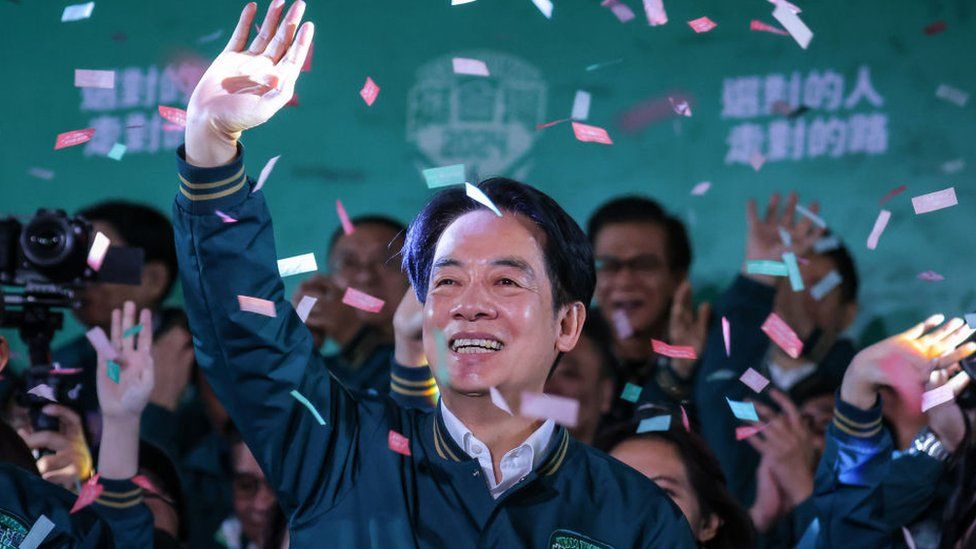-

-
-
Loading

Loading

Taiwanese voters have elected William Lai as their president in a landmark election, highlighting a growing divergence from China. Beijing is likely to be angered by the result, as it sees Lai as a "troublemaker" due to his pro-independence stance. China claims Taiwan as its own and, while it has called for peaceful reunification, it has not ruled out the use of force. The Chinese government has strongly opposed Lai's pro-sovereignty Democratic Progressive Party (DPP), which has been in power in Taiwan for eight years. China has increased its military presence around the island, fueling concerns of a potential conflict. Lai's victory in winning an unprecedented third consecutive term for his party is seen as groundbreaking. In his first comments after his opponents conceded, Lai emphasized that this path is irreversible. He stated, "The country will continue to move forward on the right path. We will not look back." Later, addressing his supporters in Taipei, he described his win as a triumph of democracy, highlighting Taiwan's independent choice in the face of alleged interference from China. While Lai expressed a desire for more exchanges and dialogue with China, he also called for peace and stability. He emphasized that Taiwan would maintain its current status, avoiding both independence and unification with China, and pledged to protect the island from any threats from Beijing. Although Lai has previously supported Taiwanese independence, he clarified that he would not pursue it as president. Lai secured 40% of the vote, surpassing his main opponent, Hou Yu-ih from the Kuomintang (KMT) party. The DPP and the KMT have alternated in power since 2000, with the KMT being more favorable towards China. Ko Wen-je, a maverick politician representing the Taiwan People's Party, gained a significant share of the vote, particularly among young voters. In addition to the presidency, voters also elected members of the legislature. The DPP has lost its majority, with opposition parties gaining ground. However, no single party has enough seats to control parliament, according to Taiwanese media reports. Analysts suggest that an opposition-dominated legislature under a DPP president could lead to a more challenging governing process in Taiwan.